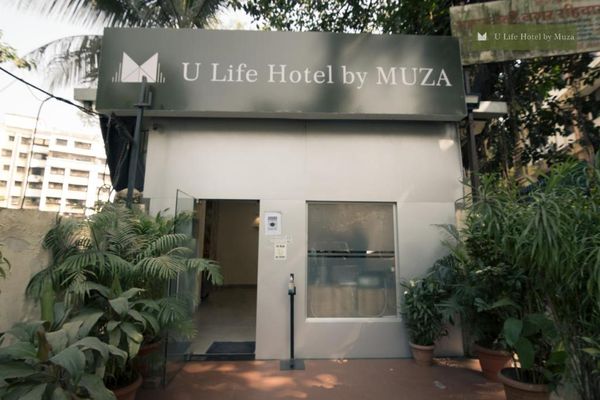Why a Passport Is Essential for Expats
 Passport Registration Online
25 Jan, 2025
12 mins read
37
Passport Registration Online
25 Jan, 2025
12 mins read
37

In a globalized world, passports are essential for expats, enabling international travel, legal identification, and access to crucial services. Whether relocating for work, education, or retirement, expats rely on their passports for seamless mobility. This vital document serves as proof of identity, allowing access to healthcare, financial services, and employment opportunities abroad. It also plays a critical role in navigating foreign legal systems and participating in global opportunities. A passport is not just a travel document; it is a gateway to a world of possibilities, offering freedom and security in a new country. Apply for passport today and open the door to global mobility and endless opportunities.
1. International Travel and Border Control
One of the primary reasons a passport is essential for expats is the ability to travel internationally. Without a passport, an individual would be unable to legally enter or exit most countries. This is true for both short-term visits and long-term stays. The passport serves as the official document that verifies the identity and nationality of the holder and enables them to move freely across borders.
- Visa Applications and Travel Documentation: Expatriates often need a valid passport when applying for visas or other travel permits. Whether you are relocating to a new country or taking short trips between countries, having a valid passport is critical. Many countries require a visa or other forms of entry clearance for individuals from certain nationalities. A passport is typically required to submit a visa application, making it indispensable for expats.
- Multiple Entries: Expats often have to travel back to their home country or visit neighboring countries. With a valid passport, they can easily travel without restrictions, ensuring they can move between countries as needed for personal or professional reasons.
- Emergency Travel: In case of emergencies—whether medical, political, or family-related—expats need a passport to return to their home country or to seek assistance abroad. A valid passport is essential to swiftly leave a country, especially in unforeseen circumstances.
2. Legal Identification and Residency
A passport serves as official identification and is often required to prove one’s identity in a foreign country. For expats, legal identification plays a crucial role in ensuring that they can interact with government authorities, open bank accounts, and access vital services.
- Proof of Nationality: In many countries, expats may be required to show their passport as proof of nationality when dealing with government services or applying for certain permits. For example, opening a bank account or applying for local identification cards may require a passport for verification purposes.
- Residency and Immigration: Many countries have specific residency or immigration laws that require expats to provide proof of their legal status in the country. Whether applying for a work permit, permanent residency, or renewing an immigration visa, a passport is an essential document that demonstrates both the expat’s identity and their nationality. It is the foundation upon which expatriates can apply for legal status in their new home country.
- Traveling with Family: For expats moving with children or spouses, passports are critical for ensuring that family members are legally recognized as part of the expat's travel or immigration process. Without passports for each family member, visas or immigration applications may be delayed or rejected.
3. Access to Healthcare and Public Services
One of the essential services that expats need access to in their new country is healthcare. Many countries offer public healthcare systems that require expats to prove their identity and legal residency to register for access. A passport serves as the main form of identification for enrolling in these systems and securing health insurance.
- Health Insurance: In many cases, expats are required to provide a passport to gain access to health insurance plans in the host country. Without a passport, expats may struggle to obtain health insurance coverage, making them vulnerable in case of illness or emergency.
- Medical Appointments: Passport information is often used to confirm the identity of expats when making medical appointments or when seeking healthcare at public or private hospitals. Having a passport ensures that expats are recognized as valid residents of the country, enabling them to receive proper care.
- Public Services: Depending on the host country, expats may be eligible for certain social benefits, including unemployment insurance, social welfare, or family allowances. Having a passport allows expats to register with local authorities to access these services.
4. Employment and Career Advancement
For many expats, a passport is the key to securing employment in a foreign country. A valid passport is often one of the first requirements when applying for a work permit, job, or even freelance opportunities in another country.
- Work Permits and Visas: To legally work in most foreign countries, expats must apply for a work visa or permit. The application process for these permits requires a valid passport to demonstrate eligibility to work in the host country. Without it, securing a job may be impossible, as it serves as a form of identity verification.
- Contractual Agreements: Employers may request expats to provide a copy of their passport to verify their identity before entering into contractual agreements. This step ensures that both parties comply with local laws and regulations, offering security to both the expat and the employer.
- Tax and Financial Matters: A passport is often required for expats to register with tax authorities, set up a bank account, or apply for loans. Many countries require expats to provide a valid passport to ensure proper tax residency and reporting.
5. Global Mobility and Protection
A passport is an essential tool for global mobility and protection, offering expatriates the freedom to live, work, and travel without the constraints imposed by borders. For expats, this is crucial in maintaining flexibility and security while living abroad.
- Freedom to Relocate: Expats may not always remain in one country; they may seek to move to another country for career advancement or personal reasons. A passport facilitates this global movement, ensuring that expatriates can relocate without facing significant restrictions.
- Emergency Assistance and Consular Support: In situations of distress, such as natural disasters, political instability, or personal emergencies, embassies and consulates often provide critical services to their citizens. A valid passport is required for the expat to access these services and return home if necessary. Whether dealing with legal issues, requiring medical evacuation, or needing consular support, a passport ensures that expats receive the necessary protection.
Also read: Passport Agency in Prayagraj
Conclusion
A passport is more than just a travel document; it is a crucial part of an expat’s life abroad, providing legal identity, access to services, and the freedom to move. Whether it’s for immigration purposes, securing a job, obtaining healthcare, or ensuring global mobility, a passport is indispensable for expats navigating life in a foreign country. By offering access to essential services, protection, and the ability to travel freely, a passport plays a central role in an expat’s success and well-being in their new home.
Written By:
Passport Registration Online



Hotels at your convenience
Now choose your stay according to your preference. From finding a place for your dream destination or a mere weekend getaway to business accommodations or brief stay, we have got you covered. Explore hotels as per your mood.





